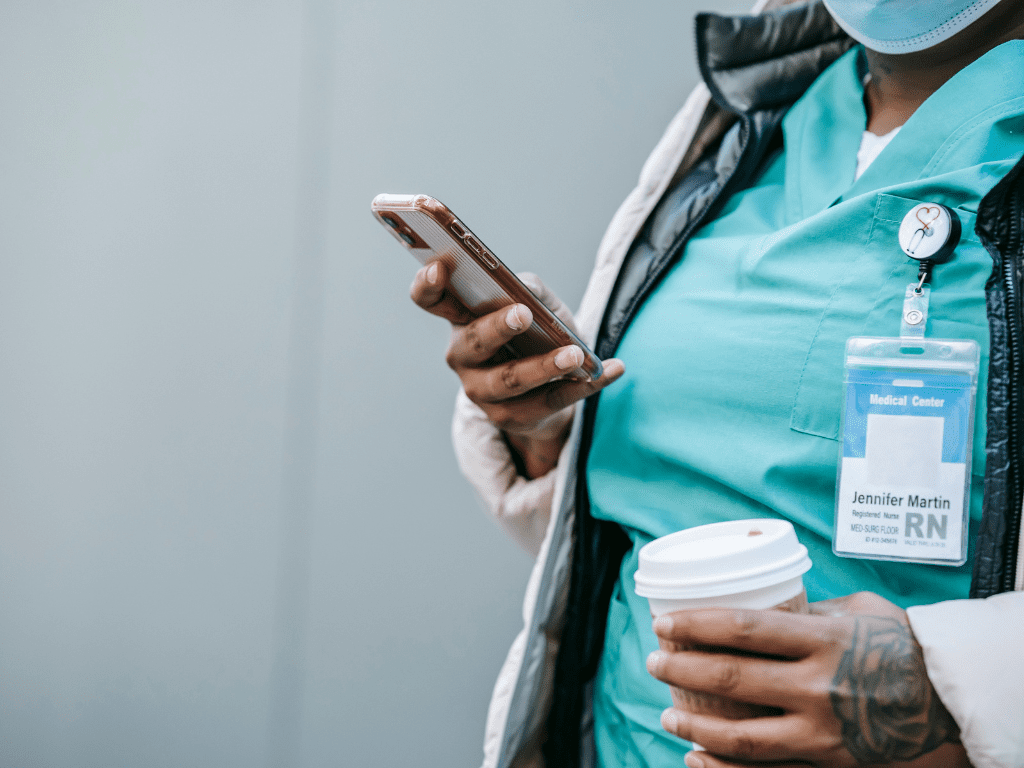Nowadays, healthcare professionals are increasingly leveraging modern communication tools for patient interaction. However, this raises critical questions about data privacy and compliance with healthcare regulations like HIPAA.
One such tool under scrutiny is Facebook Messenger. Given its widespread use, it’s vital to understand whether it meets HIPAA standards for transmitting protected health information. This article delves into the question, “Is Facebook Messenger HIPAA compliant?”, providing insights into its features, potential risks, and the necessary precautions healthcare providers must take.
Table of Contents
The Use of Messaging Apps in Healthcare
Integrating messaging apps into the healthcare sector has emerged as a transformative trend, addressing some long-standing communication issues in clinical practice. These messaging applications offer cost-effective and improved communication technologies, enabling seamless interaction among clients, patients, and healthcare staff. They support functions ranging from patient messaging to collaboration among medical professionals, enhancing overall healthcare delivery.
However, these benefits come with the imperative need for security and privacy. Using secure messaging apps in healthcare is a necessity. This is because of the sensitive nature of health information being shared. Such apps allow healthcare professionals to share critical patient data, including X-rays, prescribed medications, and charts, securely and in real-time.
Nevertheless, these apps must conform to regulations like HIPAA to ensure the confidentiality, integrity, and availability of protected health information (PHI).
Is Facebook Messenger HIPAA Compliant?
Despite its widespread use and popularity, Facebook Messenger does not meet the criteria for HIPAA compliance.
The primary reason is that Facebook will not sign a Business Associate Agreement (BAA), a requirement under HIPAA for any service handling PHI on behalf of a covered entity. Additionally, Facebook Messenger lacks appropriate audit and access controls, compromising its ability to transmit PHI securely.
Facebook Messenger can encrypt data in transit to standards that meet HIPAA requirements. However, the lack of full encryption for Messenger communication means that transferring PHI through it cannot be deemed safe. Therefore, healthcare providers should exercise caution when using such platforms for communication and avoid sharing sensitive health information unless necessary and secure.
The Risks of Using Facebook Messenger for Healthcare
While Facebook Messenger can be a convenient tool for communication, its use in the healthcare sector presents several significant risks:
- Breach of patient confidentiality and privacy. The platform does not fully comply with HIPAA regulations, which could lead to patient confidentiality and privacy breaches.
- Damage to professional image. Inappropriate usage of such platforms could potentially damage the professional image of healthcare providers.
- Cybersecurity threats. Users must be aware of the risk to their information within such apps due to potential cybersecurity threats in social media apps.
Each of these risks underscores the importance of caution when using Facebook Messenger for patient care communication.

Alternatives to Facebook Messenger for HIPAA Compliance
Several alternatives to Facebook Messenger offer HIPAA-compliant communication solutions. These platforms provide secure environments for exchanging health-related information while complying with the privacy and security requirements of HIPAA:
Trillian
Trillian is a business and clinical communication tool for the healthcare industry. It provides secure messaging that meets HIPAA requirements. In addition to instant messaging, it offers features like file transfers, group chats, and email integration.
Health Engage
Health Engage allows healthcare providers to communicate securely with patients across multiple channels, including SMS, chat, tweets, and even Facebook Messenger. It is designed to streamline patient engagement while ensuring compliance with HIPAA.
Rocket.Chat
Rocket.Chat offers a secure, flexible, and open-source team collaboration platform. It provides end-to-end encryption to ensure HIPAA compliance, making it an ideal choice for healthcare organizations. It also offers video conferencing, file sharing, and real-time translation.
Paubox
Paubox is a secure email service provider that offers end-to-end encryption for HIPAA compliance. It allows healthcare providers to send secure emails without requiring recipients to decrypt or use special software.
Spruce Health
Spruce Health is a healthcare communication platform that offers secure messaging, telemedicine, and fax capabilities. It is designed to improve patient communication and coordination while ensuring HIPAA compliance.
Virtru
Virtru is a data protection platform that offers HIPAA-compliant email and file sharing. It provides end-to-end encryption and access controls to help healthcare organizations protect sensitive data.
OhMD
OhMD is a free HIPAA-compliant texting platform explicitly designed for healthcare providers and their patients. It allows for accessible communication between doctors and patients through secure text messages.
Celo
Celo provides a secure messaging platform designed specifically for the healthcare industry. It offers features like patient-centric chats, image sharing with annotation, and an integrated directory of healthcare professionals. All data is stored on HIPAA-compliant servers.

The Critical Role of HIPAA Compliance in Messaging Apps
Ultimately, while Facebook Messenger might be a popular and convenient tool for communication, it isn’t suitable for use in the healthcare sector due to several significant risks. This includes potential breaches of patient confidentiality, damage to professional credibility, and cybersecurity threats.
However, numerous other platforms offer HIPAA-compliant solutions that healthcare professionals can safely use for secure, private, and effective communication. These alternatives ensure that sensitive health information is protected and transmitted securely, adhering to all regulatory requirements.
By choosing these HIPAA-compliant platforms, healthcare providers can maintain the trust and confidence of their patients while leveraging the benefits of digital communication tools.










